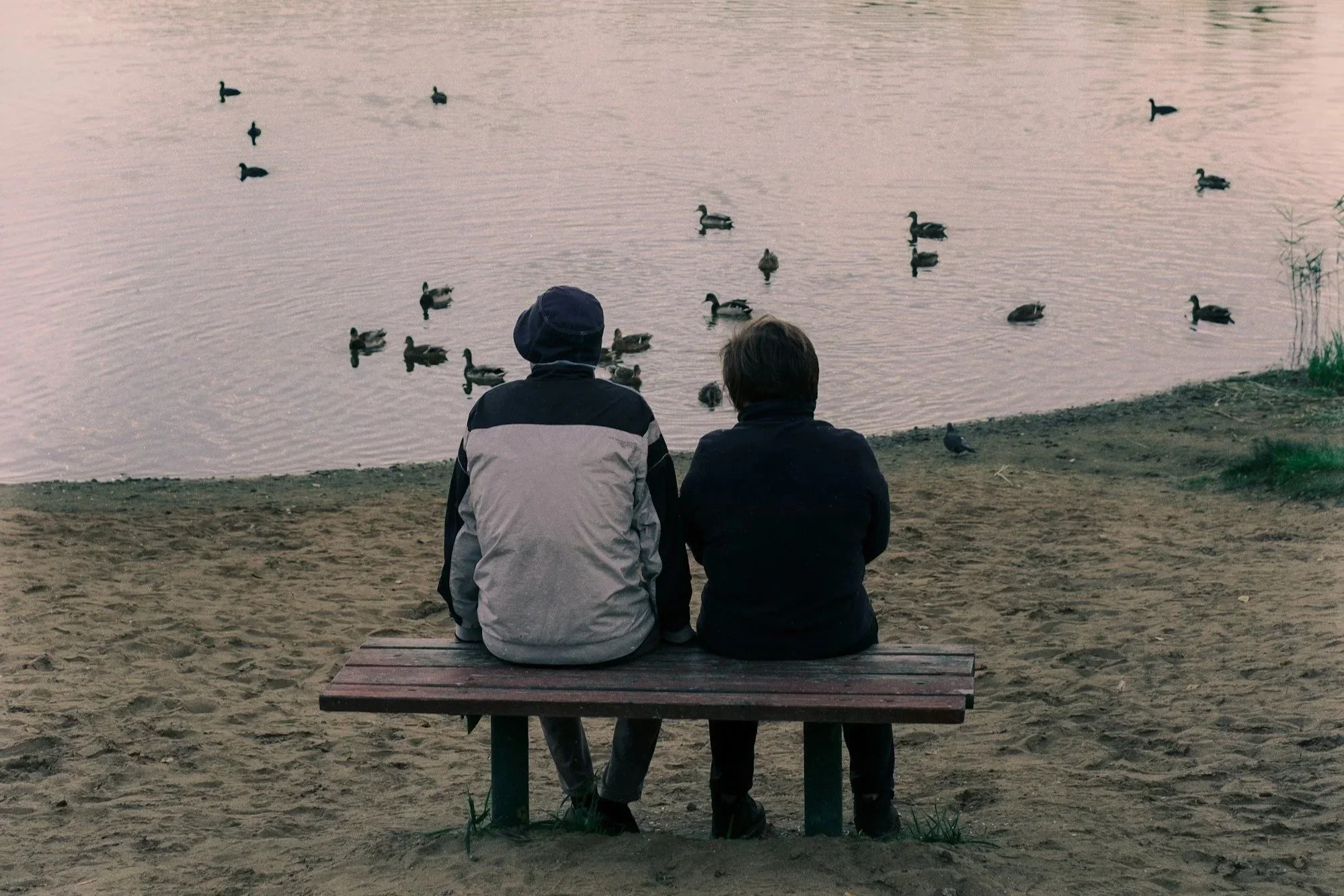
ACTW Blogs Written by our Expert Therapists
Why Co-Regulation in Relationships Matters: The Power of Shared Silence for Emotional Connection
Why Co-Regulation Matters in Relationships: The Power of Shared Silence
Most of us are taught that healthy relationships are built on communication, such as using the right words, explaining ourselves clearly, and resolving conflict through conversation. However, while words do matter, they are often not where connection begins. Connection begins in the body with our nervous system. Our nervous system is listening first before meaning is made, intentions are interpreted, or logic is accessed. Your body is trying to answer the question: Am I safe here?
And the answer to that question does not just come from words, it comes from consistency of another person meeting you where you are at in the moment. This is where co-regulation comes in.
How to Express Emotions in Relationships: A Therapist’s Guide to Emotional Awareness and Connection
In any close relationship, emotions run the show, whether we realize it or not. Emotions shape how we interpret our partner's actions, how we respond to conflict, and how we build intimacy. Yet, many of us were never taught how to identify our emotions, let alone share them in a way that brings us closer to the people we love.
Couple’s Meditation: A Simple Daily Practice to Reconnect and Rekindle Intimacy
In today’s fast-paced world, even the closest couples can struggle to maintain a deep emotional and physical connection. Between work, obligations, digital distractions, and daily stress, intimacy often becomes an afterthought rather than a priority. But what if one of the most powerful tools for rekindling that spark doesn’t require gifts or grand gestures—just stillness and presence?
Enter: couple’s meditation.
This shared practice is more than just sitting quietly side by side. It’s a powerful way to nurture trust, emotional vulnerability, physical closeness, and spiritual connection—all essential components of lasting intimacy.
Setting Healthy Boundaries in Romantic Relationships: A Guide to Deeper Intimacy
In the early stages of a romantic relationship, it can be easy to blur the lines between where you end and another person begins. The closeness can feel exciting, powerful, even healing. However, as the relationship grows, so does the need for a less romanticized, more rooted act: setting boundaries.
Boundaries are not walls. They’re not punishments, ultimatums, or emotional distancing tactics. Boundaries are points of deeper intimacy and connection. They are bridges that allow us to meet others without abandoning self in the process.
Why Reassessing Relationship Values Is Essential During Life Transitions
Life is full of transitions—some expected, others sudden. Graduating college, starting a new job, moving cities, becoming parents, losing loved ones, or navigating health challenges—each shift brings new rhythms, roles, and realities. In these moments of change, one thing becomes clear: maintaining a strong relationship isn’t just about love; it’s about alignment. And that alignment is rooted in shared values.
Navigating a Relationship with an Avoidant Partner: Understanding the Challenges and Finding Clarity
Being in a long-term relationship with an avoidantly attached partner can feel like standing outside a locked door, waiting for an invitation inside that never quite comes.
People who lean more avoidant aren’t necessarily incapable of love — they often care deeply — but they struggle with emotional closeness, vulnerability, and interdependence. Due to early childhood experiences, they have learned it is safer to only rely on themselves, to downregulate their emotions (often suppressing them), and to self-soothe independently.
Over time, this can leave their partner feeling lonely, confused, and questioning whether staying is sustainable.
If you’ve been in a long-term relationship with an avoidant partner, you’ve likely wrestled with some of the following questions and struggles.
The Relationship Benefits of Gaming Together: Expert Advice for Couples
In today’s fast-paced world, it can be difficult for couples to find quality time to spend with each other. Between work commitments, family responsibilities, and personal obligations, it’s easy for time spent together to get pushed aside. But what if I told you that one of the most fun and effective ways to reconnect with your partner could involve something as simple as a video game?
Why Fixing Isn’t Helping: How to Support Your Partner by Holding Space, Not Solving Problems
You’re sitting across from your partner, watching their face tighten as they talk about a stressful day at work. You hate seeing them like this. So, you jump in:
"Why don’t you just talk to your boss about it?"
"You should try waking up earlier—maybe that would help."
"Have you tried meditation? I read it really helps with stress."
You are somewhat surprised when they respond with frustration. Maybe they even snap back with, "I don’t need you to fix it!" And now you feel defensive.
So, what’s happening here? And why does this dynamic feel so familiar?
Navigating Marriage: Practical Tips for Couples Adjusting to Life After the Wedding
Communication is Key: Navigating Change Together
Why it matters: Transitioning into marriage often involves learning how to communicate more openly and effectively. It’s about being vulnerable, expressing needs, and listening actively.
Tips:
Create a habit of checking in with each other regularly about your relationship.
Use “I” statements instead of “You” statements to express feelings without sounding accusatory.
Learn how to argue constructively—disagreeing is normal, but how you handle it can strengthen the relationship.
Chores, Communication, and Neurodivergence: How to Strengthen Your Relationship Through Collaboration
Whether one or both partners identify as neurodivergent, managing everyday tasks can sometimes feel overwhelming. Are you struggling to navigate household chores together? You’re not alone—many couples face similar challenges. From varying processing styles to communication preferences, these differences can impact your relationship dynamics. But with the right strategies, you can transform these obstacles into opportunities for growth and collaboration. Let’s explore how to create a more harmonious home together!
Embracing Love Beyond Boundaries: The Beauty, Challenges, and Growth of Interracial Dating
In today’s world, love is a powerful force that transcends barriers—whether they are cultural, geographic, or even racial. Interracial dating, where individuals from different racial or ethnic backgrounds form romantic relationships, is becoming more common and accepted. While it has come a long way in terms of social acceptance, it’s important to understand the beauty, challenges, and depth of interracial relationships. This post will explore the positive aspects of interracial dating and provide insights on how we can embrace these relationships with respect and understanding.
How to Navigate Cultural Differences in Relationships: Challenges, Strategies, and Strengthening Your Bond
In today’s interconnected world, multicultural relationships are becoming increasingly common. Couples from diverse backgrounds bring a wealth of traditions, values, and experiences to their relationships. This diversity can be a source of strength, fostering creativity and understanding as partners learn from one another. However, these relationships can also come with unique challenges. Drawing from my personal experiences and professional insights, here are some thoughts on how couples can navigate the complexities of cultural differences.











